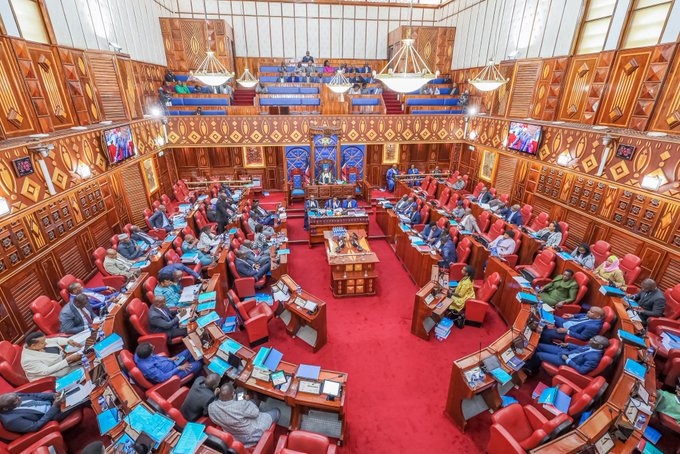Experts have called for strict enforcement of existing laws which are meant to protect the environment from further degradation.
The experts have raised concern that despite existing laws, laxity in enforcement has hampered restoration efforts leading to continued degradation mostly from human activities.
The key area of concern is encroachment on riparian areas and grabbing of protected spaces.
Kevin Juma, Africa Climate Director with The Nature Conservancy in Africa has said with an increasing population and urbanisation, the productive land has become less productive hence pushing people to protected areas to produce more food.
He said most countries, including Kenya, have land use plans that set aside areas that should be conserved or areas that need to be protected.
"There is a law to set aside certain metres away from the river but people are still going there, they are looking at where to provide more food for a growing population," Juma said.
"There are bylaws, there is a need for proper enforcement and we should also talk about environmental impact assessment before doing some of these developments."
He emphasised the need to evaluate the current interventions and look at how they will impact future generations.
Juma however acknowledged the need to support and reintegrate the local indigenous communities in the country and their knowledge.
"For example the pastoral communities, 65 per cent of wildlife is outside the state-protected areas, they are either in community lands or private lands, communities have been staying with them for these generations. We need to look at how to give proper incentives for them to keep conserving and protecting these resources."
They have noted that despite more efforts being put in conserving the environment, more needs to be done.
The chairperson Green Belt Nyaguthii Chege decried high levels of privatisation of public land which in most cases was meant for green spaces for Kenyans.
Most of them have seen a boom in high-rise concrete buildings with no provision for public green spaces.
"There was no real ownership of the city by those who had come in for the first time unlike what you see now where you have got urban dwellers who feel like this place is where I belong," Constant Cap, mobility unit at the UN Environment Programme said.
They warned that human activities on the environment are having an impact on the population not just in the aspect of global warming but in terms of mental health.
They warned that healthy natural spaces are important to people as degradation has scientifically been proven to have seen a rise in incidences of respiratory diseases such as asthma.
They were speaking during a panel discussion at the ongoing Hearth Summit 2024 in Nairobi.
The two-day summit brings together at least 300 change makers to discuss well-being and lay a roadmap for collective action for the well-being of society.
The summit is being hosted by the Wellbeing Project and Axum. The summit brings together a diverse group of industry visionaries, innovators, and dedicated professionals committed to shaping societal well-being.
The summit offers two days of impactful conversations and connections with like-minded change-makers striving for positive change.













